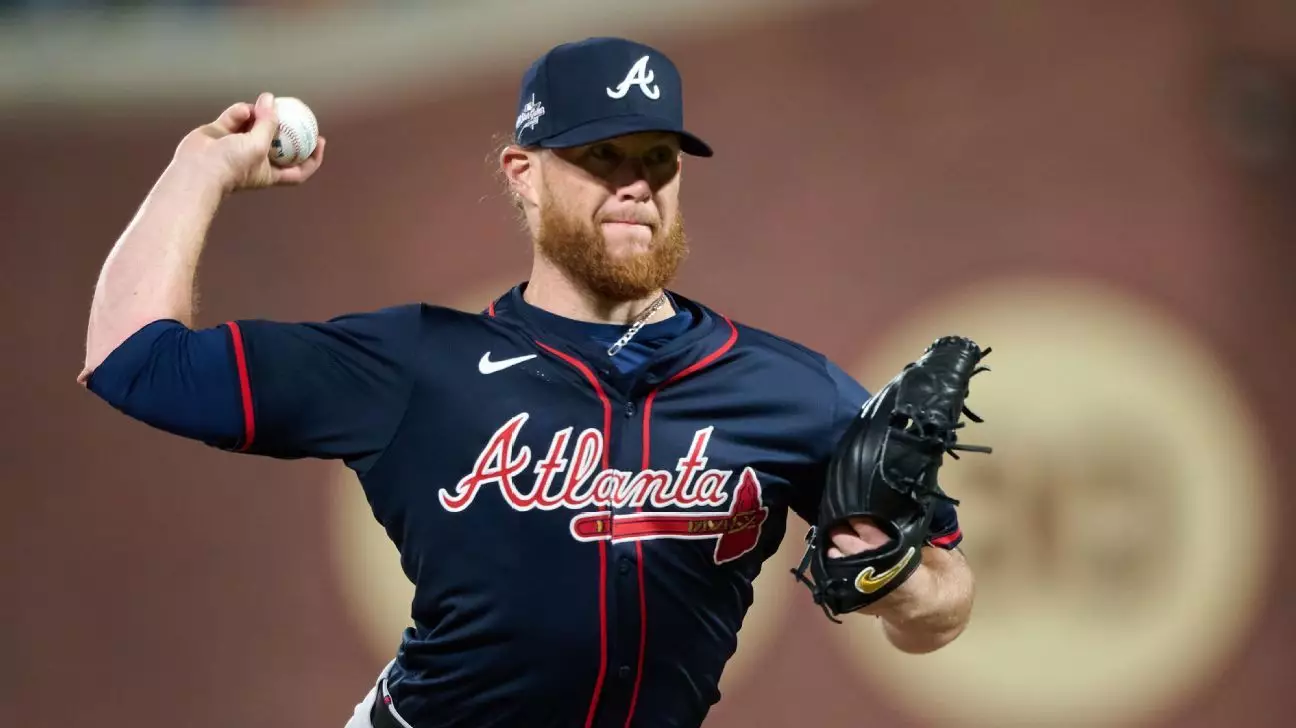In the high-stakes world of Major League Baseball, teams constantly seek that elusive edge—be it a game-changing player or a strategic move. Houston Astros’ recent acquisition of veteran reliever Craig Kimbrel epitomizes such a calculated risk. Faced with a declining bullpen performance and a crucial lead in the AL West, Houston’s front office has turned to a seasoned pitcher whose career reflects both brilliance and recent volatility. This decision is not merely about adding another arm; it’s a statement that the Astros recognize their limitations and are willing to invest in experience, hoping that Kimbrel’s veteran savvy can be the catalyst for a late-season resurgence.
The Decline of a Once-Domineering Force
Craig Kimbrel’s journey mirrors the rollercoaster of MLB careers today—marked by flashes of dominance and periods of unpredictability. Once regarded as one of the most fearsome closers of his generation, Kimbrel’s numbers tell a story of gradual decline, largely attributed to physical wear and evolving pitching dynamics. His once blazing fastball, which topped 98 mph during his prime, has settled to the low 92s. This loss of velocity poses a challenge in maintaining his previous dominance, especially as offensive strategies adapt. Nevertheless, Kimbrel’s refined arsenal—featuring his iconic knuckle curve and a new slider—still provides chase-tier strikeout potential, even if he no longer profiles as an overpowering force.
The Astros’ Bullpen: Treading Water or Facing Collapse?
The Astros’ season narrative reveals a bullpen that, while formidable initially, has faltered since the summer months. With a core group of heavily taxed relievers, Houston has been over-reliant on a handful of pitchers who are now experiencing fatigue, secondary injuries, or diminished effectiveness. Their collective ERA ballooned from a remarkable 3.47 pre-July to over 4.69, exposing vulnerabilities in the late innings. This fatigue background underscores the urgency to bolster relief options. Kimbrel, with over 68 saves and more than 240 strikeouts in recent seasons, represents not just an individual upgrade but also a shot of renewed confidence—a veteran presence who can command the late innings and provide a much-needed mental boost to the beleaguered bullpen.
Will Experience Outweigh Evolution?
While the rationale behind signing Kimbrel appears solid on paper, questions linger about whether age and recent performance are enough deterrents. His statistical decline, especially in ERA and velocity, may raise skepticism about his ability to return to his previous elite levels. Yet, baseball’s history reveals that seasoned closers often possess intangible qualities—composure under pressure, game awareness, and the ability to manipulate hitters—that cannot simply be quantified. Houston’s gamble rests on whether these intangibles, combined with Kimbrel’s ongoing arsenal, can compensate for the physical decline. If he manages to rediscover some of his early dominance, the Astros could find their missing piece for a postseason push. However, if age continues to chip away at his effectiveness, this signing risks becoming a fleeting moment of hope rather than a sustainable solution.
A Strategic Opportunity or Overreach?
Ultimately, Houston’s move to sign Kimbrel is emblematic of a team’s willingness to embrace risk for potential reward. In a league where playoff spots are fiercely contested, such aggressive roster moves can make or break a season. The Astros are betting on Kimbrel’s veteran mentality, experience, and the hope that his craftiness can supplement their faltering relief corps. It’s a bold step that underscores the importance of bullpen depth and the constant search for that winning formula. Whether it transforms their late-game execution or becomes a misjudged overreach remains an open question—one that highlights the delicate balancing act teams face in pursuit of postseason glory.

